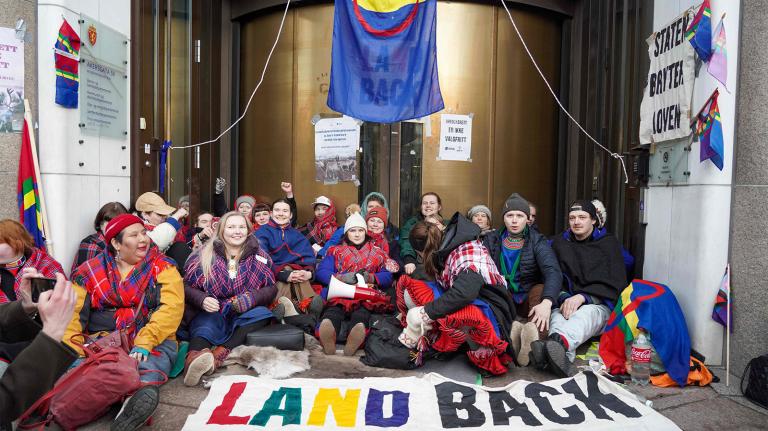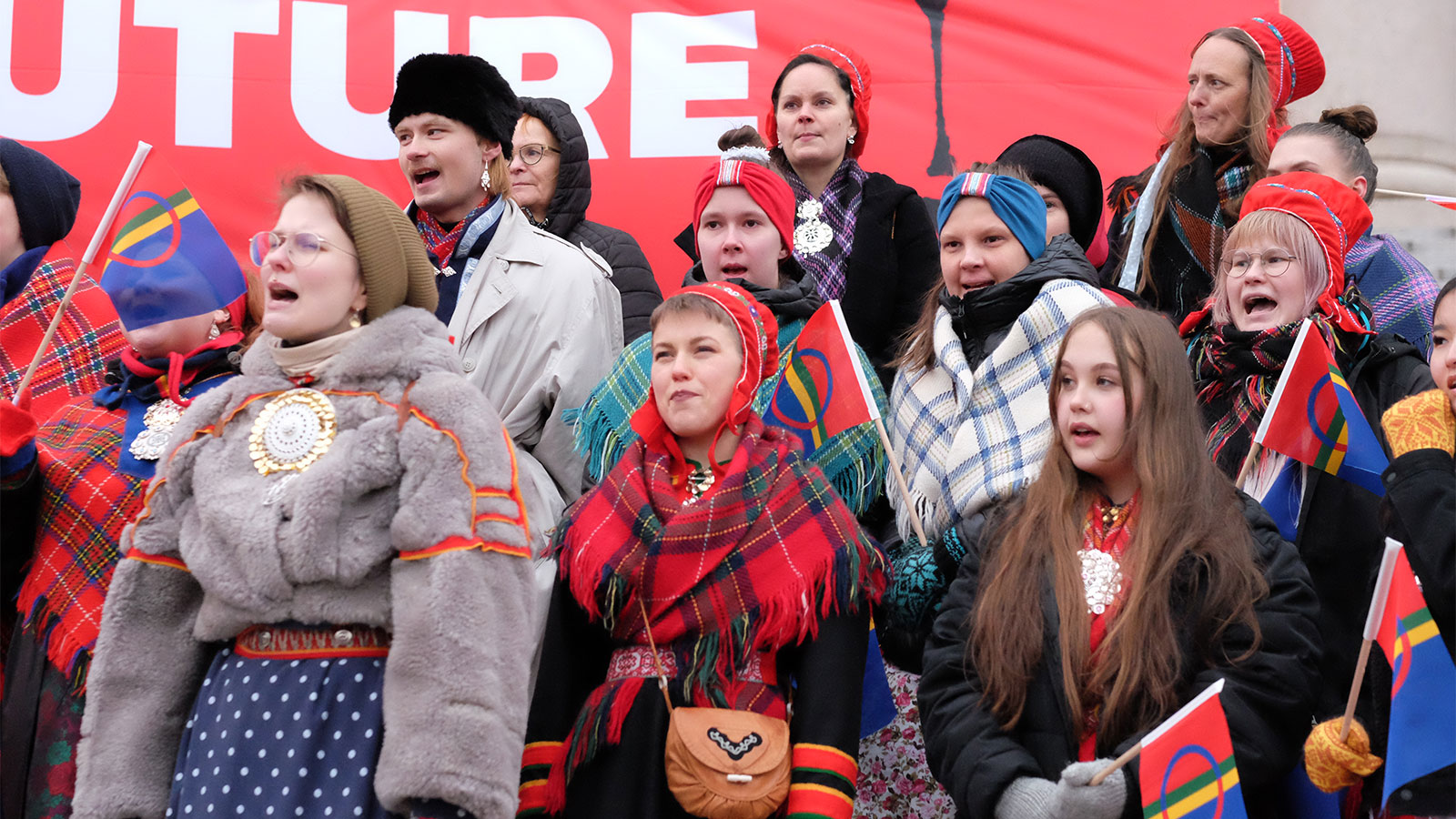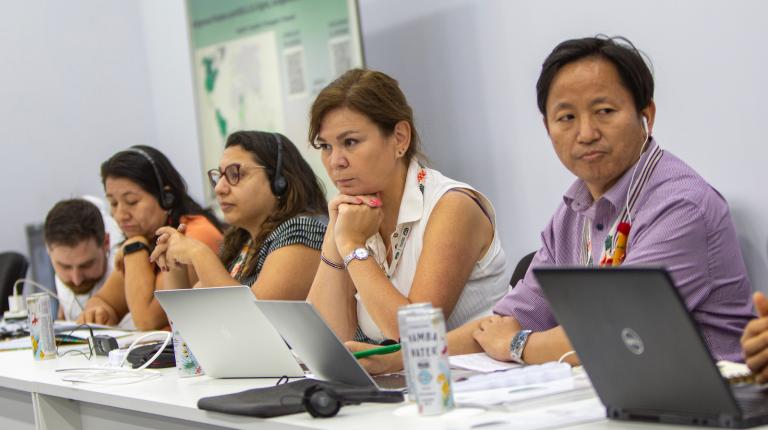The government of Finland on Friday punted legislation that would have clarified legal rights for the Indigenous Sámi and revised how Finland’s parliament consults with the Sámi legislative assembly. Among the many reasons for contention, conservative critics have voiced concerns that the legislation could bolster Indigenous land use rights, potentially hindering mining and wind power projects in Sámi territory in Northern Finland, known as Sápmi.
Despite support for the bill from four of the five parties that make up Prime Minister Sanna Marin’s coalition government, the nation’s Center party blocked the law’s advancement to a full vote, marking the third consecutive government that has delayed recognizing the rights of the Sámi peoples.
“This is very much a continuation of colonial policy and the assimilation policy, but now targeting our very own representative institution,” said Áslat Holmberg is president of the Saami Council, a non-governmental organization with Saami members in Finland, Sweden, Norway and Russia.
The delay comes amid fears of development projects that would cut through Sápmi. Recent years have seen the Sámi resist – and effectively stall – large-scale infrastructure projects like the proposed Arctic Railway. But Petra Laiti, chair of Sámi youth in Finland, notes that interested parties are constantly scoping mining projects in the region, especially given the country’s lax mining laws, though Finnish parliament recently approved tighter regulations.
One of the provisions in the legislation would have strengthened land use rules around consulting with Sámi communities on activities that take place in their territories such as managing, using, and leasing state land or conservation areas, or approving applications for mining licenses – a process similar to obtaining Free, Prior and Informed Consent, an international standard for respecting Indigenous rights.
“The possibility of mining projects has been hanging over the Sámi’s heads for quite some time across all of our territories within the Finnish borders,” Laiti wrote in an email, explaining that without self-governance, the Sámi community can only react defensively, instead of proactively, to protect their lands. “We have the right as Indigenous people to have a say in what happens on our lands.”
Laiti said that development threatens traditional practices, like reindeer herding, fishing, and hunting. But it goes beyond heavy industries like logging and mining – the explosion of tourism in Northern Finland, she explained, takes a toll on the environment as more hotels are built and foot traffic increases in wilderness areas.
Holmberg said the proposed act would have ensured a new process that facilitated negotiations between project developers and the Sámi parliament, but state authorities would still have the final say and be able to proceed even if negotiations failed to happen.
“It would not have changed the power dynamics at all, but at least it would have given the chance for the Saami parliament to state their position,” said Holmberg. “Now, it’s quite largely up to the goodwill of the state actors if they want to include Sámi views or not.”
In an email, Satu Hassi, Chairperson of the Grand Committee of the Parliament of Finland, said many Finns strongly oppose Sámi self-determination rights. “Some do not want that Sámi people have the right to express their opinion on land use changes, like logging in state owned forests, mining, new railway lines, etc. They want that if Sámi people can express their view on those issues, then the local Finns should be able participate in the Sámi decision making.”
One of the main controversies in the bill would enable a Sámi Parliament election board to define who is able to vote and who is able to run as a candidate in Sámi elections. Currently, Finland’s Supreme Administrative Court determines who is Sámi, and has expanded the Sámi voting register without Sámi consent. In 2015, in the months leading up to Sámi parliament elections, hundreds of Finnish people applied for Sámi voter registration and nearly 100 people were approved to vote by Finnish courts, adding new candidates who would not have been eligible otherwise. The Sámi Parliament Act would tighten that definition by requiring potential voters to have one great-grandparent who spoke Sámi and eliminating an allowance that lets people claim status through tax documents. This change is more closely aligned with the definitions of Sámi identity in Norway and Sweden.
“[The bill] is not to define who is Sámi, but define who gets to vote in the Sámi parliament,” said Holmberg. “Those are two different things.”
The issue of self-identification has been acknowledged at the international level, with the United Nations Human Rights Committee condemning Finland’s denial of self-determination for the Sámi people in 2019, and the UN Committee on the Elimination of Racial Discrimination arguing similarly in 2022. In 2011 and 2015, the Human Rights Committee raised concerns over Finland’s treatment of the Sámi.
“I am extremely unhappy for this situation,” wrote Satu Hassi. “I very much hope that the next Government will give the same legislative proposal to the next Parliament.”
Representatives from the Center Party did not return requests for comment.




